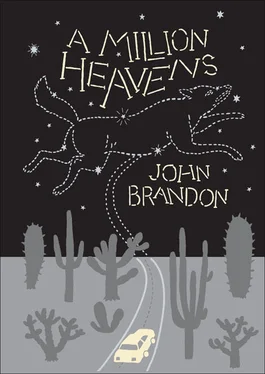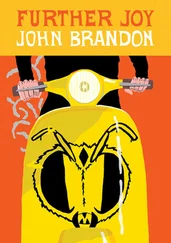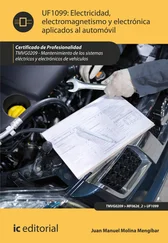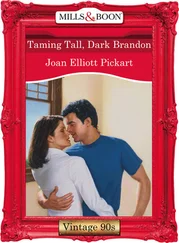He knew how bad it was for him that he wasn’t running his lunch truck route. He had always run the route. It was the spine of his days. Everyone looked forward to seeing him on their breaks, waited for him and saluted him and marveled at how fast he made change. There were five trucks in his fleet, and only four were in use right now. Soren’s father’s truck was sitting in the parking lot, sand blowing into the grill and collecting around the tires.
Still nothing was wrong with Soren other than his coma. His vitals were strong. His skin was fine. No colds. No seizures. There would be no drama, no lesser trouble that might offer relief or distraction.
She was up in the booth. She had a view of four auditoriums, but only one was used at this hour, a class about architecture. This particular professor never needed anything complicated from Cecelia. He used an old-fashioned slide projector that never broke. The professor was very old, kindly. He was exactly what Cecelia believed a professor should be. He had white, mussed hair and patches on his sleeves.
A lot of the younger professors had latched on to the idea that they were doing something wrong if they didn’t utilize all available technology. They wanted to incorporate the Internet and show everything on big projectors that hung from the ceilings and could only be operated by remote control. They wanted every kid to have a laptop and have them all networked and downloading and everyone was supposed to wear headphones and use thumb drives. Despite her A/V job, Cecelia was not savvy in these matters. Whenever a professor had a problem that was over her head, she would go through the same routine. She’d shut the whole system down and power it back up, duck down and mess with some wires underneath the cabinet, press a few random buttons, put her hand to her chin and shake her head and say, “I’ve never seen it act this way before. Something’s really wrong with it. They’ll have to get a technician out here in the morning.” Usually the professors were understanding, but occasionally one would say, “I thought you were the technician.” So far, Cecelia’s boss seemed not to have caught on that she didn’t know the first thing about high-tech computer equipment.
Cecelia cracked open her poetry anthology and read a couple verses about small boys playing in backyards. The poems were hushed and reasonable and made Cecelia drowsy. There was another girl who was supposed to be in the booth with her this hour, who always helped keep Cecelia awake, but she hadn’t shown. The girl had a lot of friends and always came in with a different hairstyle. Her name was Marie.
Cecelia closed her eyes for a few minutes and then a knock came at the booth door. She looked down at the architecture class. Nothing was amiss. The professor was still pointing and lecturing.
“It’s open,” Cecelia said. She sat up straight and tucked her hair behind her ear.
A guy holding a pizza pushed the door back. He had a ponytail. “This is from Marie,” he said. “She felt bad about leaving you alone in here.” His T-shirt was bright yellow and it said YELLOW SHIRT across the front.
Cecelia was starving. She wondered if the pizza was meant as a bribe, so Cecelia wouldn’t tell their boss that Marie wasn’t showing up.
“She didn’t have to buy me a pizza,” Cecelia said.
“She didn’t,” said the guy. “I owed her a favor. I had some other deliveries on campus.”
“How do you know Marie?” Cecelia asked.
“Lots of ways,” said the guy. “She couldn’t make it because she came down with temporary fatigue syndrome.”
“Oh,” Cecelia said.
“People are always trying to be funny, aren’t they?”
Cecelia nodded.
“I won’t accept a tip from you because you didn’t order the pizza. No tipping on gift pizzas. That’s my policy.” The guy turned quickly, swooshing his ponytail, and was gone.
Cecelia slid the pizza box in front of her and opened it. She ate two wide greasy slices and felt like she’d never want to eat again. Now that she was full, the pizza didn’t smell good, so she set it outside the door. The architecture class was winding up. Next there would be a biology class in the east auditorium and a political science class in the north.
The phone rang. Cecelia got up and carried it over near her chair and set it on the counter. It was so loud it was ringing itself hoarse. Cecelia lifted the receiver.
“A/V booth,” she said.
“Amway.”
“Hello?”
“It’s Nate.”
Cecelia hadn’t spoken to Nate since the incident at the diner. “How’d you get this number?” she asked.
Nate breathed sharply. “Isn’t that a boring job?”
Cecelia had noticed that whenever Nate felt guilty he acted meaner than usual.
“What do you make, like nine dollars an hour?”
“Look,” Cecelia said. “Don’t worry about the other day. It’s a weird time. No big deal.”
“Why would I worry about the other day?”
“No reason, that’s what I’m saying.” She wanted to be civil. Nate was probably more messed up than he would ever let on over Reggie. Reggie had been the kind of person who, though he was good at everything, didn’t inspire jealousy. He made people feel satisfied with themselves.
“Thought you’d be happy to know, I’m giving up the name Shirt of Apes,” Nate announced. “I decided I better take the opportunity to shake the old fans — try to get some new ones, normal ones, maybe people with money to spend.”
“Uh-huh,” Cecelia said.
“You probably won’t be as happy to hear I’ve decided I’m going to use our old songs for my new band. I’m having tryouts this weekend and whoever I pick, I’m going to teach them our songs and we’re going to perform them live for pay. As part of a new, currently unnamed band. Just to be clear.”
“You mean Reggie’s songs.”
“Since you’re on sabbatical or whatever, and I don’t suppose Reggie needs them for anything.”
“You mean you’re going to steal Reggie’s songs because you can’t write your own.”
“Call it what you like.”
“I am. I call it stealing.”
“I could justify taking the songs until the cows come home. Anybody can justify anything. It’s what separates us from animals. It’s a waste of time, though, isn’t it — sitting around justifying when there’s so much to be done? It’s not easy starting a band, you know?”
Cecelia felt frozen up inside, but she heard herself talking. “There’s got to be a way I can stop you,” she said. “Legally.”
Nate snorted. “You won’t do that. You won’t get a lawyer. Reggie didn’t have the songs copyrighted or anything.”
“Copyrighted?”
“Yeah, that’s what you do if you’re smart. You copyright intellectual property.”
“You’re an evil person, Nate. I know that’s not news to you. I’m pretty disgusted I was ever in a band with you.”
“You needed my capital and hustle. Power, I call it. You needed my power.”
Cecelia didn’t say anything. If she had said something, she would’ve expressed her wish that Nate had died, not Reggie. She wasn’t going to say something like that. It was true, of course. If someone had to get in a bad car accident, it should have been Nate.
“You didn’t have to quit,” Nate said. “I’m not going to be penalized because you don’t feel like playing anymore. I invested a lot.”
Cecelia’s heart wouldn’t slow down. The only victory she could salvage, at the moment, was not letting Nate know how badly he’d upset her. She was telling herself, almost in a chant, that she wasn’t going to let Nate have the songs without a fight, but right now she wanted to appear calm, merely disappointed. She wasn’t going to get a lawyer, true, but she also wasn’t going to do nothing. Nate would probably get the songs, she could already see that, but she wasn’t going to let him out of this unscathed. She was tired of being above things, of putting up with things. She saw that there were people who attacked and people who got attacked, and that the only way to keep from being a victim, like Cecelia perpetually was, was to do some attacking.
Читать дальше












